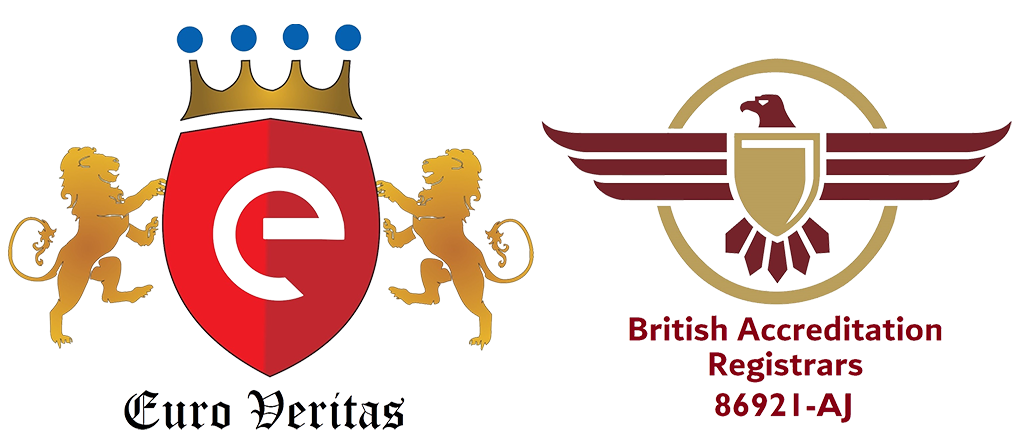Recreational diving services — Requirements for recreational diving providers
Euro Veritas, UK (www.euroveritas.com) accredited from BAR-UK provides Certification services for ISO 24803:2017 vide Procedure No. EVL/RDS-MS/C-A/2682/C-1.
Euro Veritas, accredited from BAR-UK has started the scheme of auditing and certification towards ISO 24803:2017- for organizations providing recreational activities, such as diving, for which training and experience are essential for the participants to be able to carry out the activity safely.
Although recreational diving is potentially hazardous, the risks to the participants and to the natural and cultural resources of the dive sites can easily be reduced to acceptable levels by the adoption of appropriate precautions. Additionally, impacts to the marine environment, particularly fragile marine ecosystems such as coral reefs, can be reduced through proper education and training of scuba instructors, dive leaders and divers.
A service provider can offer diver training and education, guided dives and rental of diving equipment, snorkelling excursions, and courses leading to one or more of the diver or instructor qualifications specified in the relevant ISO standards. This document specifies requirements for each of these services separately. Thus, although a client might be provided with two services at the same time (for example, diver training and rental of diving equipment), the client is considered to be in receipt of two distinct services. Examples of service providers are a land-based dive centre, a boat-based operation, a dive club, an individual instructor, a watersport centre or an operator offering snorkelling
excursions.
Service providers can often supply compressed breathing gases. This service is not covered in this document as it is usually covered by national legislation and/or other standards. This document for service providers has a key role in the series of standards for recreational diving services as it specifies requirements that are common to the provision of training and qualification of divers and instructors, as specified in the other standards in the series.
ISO 24803:2017 specifies requirements for service providers in the field of recreational scuba diving and snorkelling excursions.
It specifies the following areas of service provision:
- introductory diving activities;
- snorkelling excursions;
- provision of training and education;
- organized and guided diving for qualified divers;
- rental of diving and snorkelling equipment.
Service providers can offer one or more of these services. ISO 24803:2017 specifies the nature and quality of the services to the client. ISO 24803:2017 does not apply to freediving (also called "apnea diving").
Euro Veritas, UK (www.euroveritas.com) accredited from BAR-UK provides Certification services for ISO 24803:2017 vide Procedure No. EVL/RDS-MS/C-A/2682/C-1.
Service providers may offer one or more of these services. ISO 24803:2017 specifies the nature and quality of the services to the client and applies only to contractual provision of those services.
Related Standards:
Reducing diving-related accidents
ISO standards help the business to comply with regulations, in conjunction with third-party certification by an accredited certification body, and they also help demonstrate to potential customers and authorities that they are providing quality services. The lack of any specific national regulations in the diving instructor sector, has led many countries to adopt the ISO series of standards on recreational diving as being the industry requirement. Egypt, that made the ISO standards a legal requirement for its dive centres, registered a 24 % decrease in the number of diving-related accidents over a two year period.
Benefits of Euro Veritas accredited Certification:
1. Delivering cost savings: Standards and accredited conformity assessment services can help achieve cost savings in all areas of business from purchasing, production, sales, R&D, quality assurance, environmental protection and occupational health & safety. They can also generate internal efficiencies through lower energy use, reduced waste, and greater resilience.
2. Enhancing environmental performance: The need to measure environmental performance or limit ecological impact is a crucial focus for many organisations. Accredited testing, calibration, inspection and certification provide consumers, suppliers, purchasers and specifiers with assurance about environmental-related claims made. These services also offer Government and Regulators with reliable evidence of compliance. These case studies show how businesses are using fewer resources, cutting waste, increasing recycling and reducing energy costs.
3. Expanding market opportunities: The use of standards and accredited conformity assessment are increasingly being required in the supply chain and are appearing in a growing number of tender documents. They provide purchasers with confidence that products are safe, reliable and meet specification. As a result, they provide access to new markets and opportunities. International standards and mutual recognition accreditation agreements facilitate trade through the removal of technical barriers to trade and the reduction in potential transactional costs.
4. Gaining quality improvement: Organisations that use standards and accredited conformity assessment have higher levels of satisfied customers, more efficient ways of working, better control of their costs, and greater control over their internal processes and competence of staff. Case studies refer, for example, to how firms increase the resilience of their IT systems, manage assets better, and improve the attractiveness of their products and services in the market.
5. Improving company performance: Standards, certification, testing, inspection and accreditation, help businesses to reduce costs, increase productivity and access new markets. The examples evidence the cost savings achieved whether through resource efficiency or meeting regulation at a lower cost, the value of accessing new markets, or savings achieved through recognition from insurers, regulators or purchasers.
6. Marketing message: Using standards and accredited conformity assessment can offer a set of powerful marketing tools for organisations of all sizes and across all sectors. Standards and accredited services are a useful tool in the marketing of products and services. They are used to enable businesses to play on a level playing field with larger rivals and to leverage the competitive position of a product by reducing customer uncertainty.


